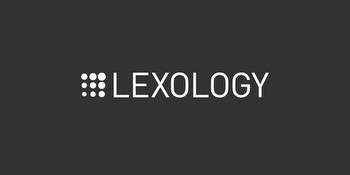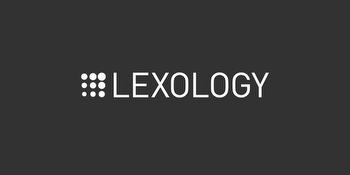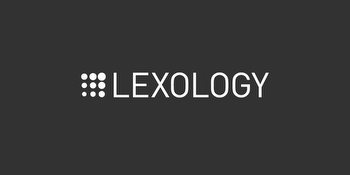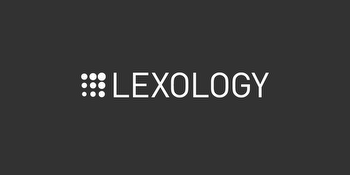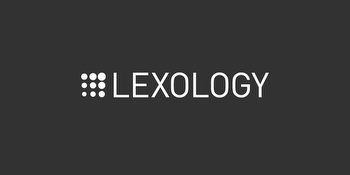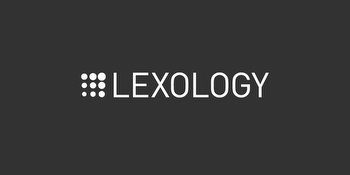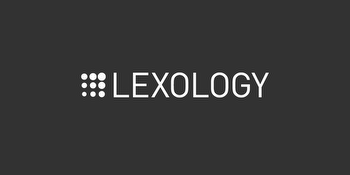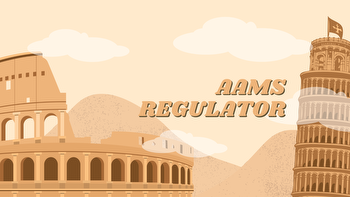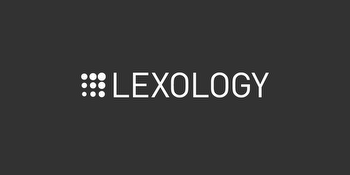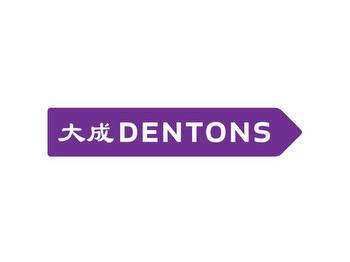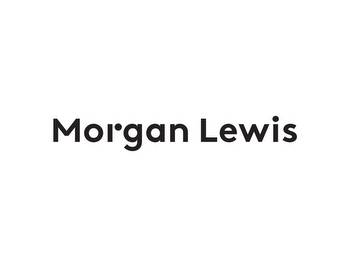Minister Browne's opening speech Gambling Regulation Bill
I move that the Bill be read a second time.
I am pleased to have the opportunity to present the Gambling Regulation Bill before this House. I know there is significant support to progressing this landmark legislation and I look forward to hearing your contributions.
Today is a true milestone for this long awaited legislation. This is an important and necessary Bill and reform, designed to meet the challenges of gambling responsibly in 21st century Ireland.
The advent of the internet has wrought considerable and rapid changes to gambling activity, with more ease of access to gambling than we could ever have thought possible. Everyone, including children, can now carry a mobile casino on the phone in their back pockets. Therefore, it is vital for all concerned – both for the individuals who partake in gambling and the companies which provide such activities and services – to have a robust regulatory framework with public safety as a cornerstone.
The Bill takes a responsible approach to balancing the freedom to gamble with the safeguards to protect people from falling prey to addiction. This Bill provides a clear framework for operators and for consumers.
Importantly, it is intended to help to protect children and prevent harm to people vulnerable to problem gambling.
The primary objective of the Bill is to present the framework for a robust regulatory and licensing regime for the gambling sector in Ireland. It provides for the establishment and statutory functions of a body to be known as Údarás Rialála Cearrbhachais na hÉireann or the Gambling Regulatory Authority of Ireland.
- ensure that gambling is conducted in a fair and open way for companies to make decisions with certainty;
- require safeguards to address problem gambling including protecting children and addressing gambling advertising; and
I am hopeful that, with the support of both Houses, this Bill will be signed into law and enter into force by mid-2023, with the intention of establishing the Authority later next year.
As part of the Government’s commitment to establish a gambling regulator, in September this year, Ms. Anne Marie Caulfield was appointed CEO Designate of the Authority. Ms. Caulfield is working closely with my Department to identify staffing and resourcing needs and to develop procedures for how the Authority will function once it is operational. Ms. Caulfield’s ongoing preparatory work, in parallel with the passage of the Gambling Regulation Bill, will ensure that the Authority will be ready to hit the ground running once it is formally established. A phased commencement will be necessary in light of the scale and complexity of the transitional and operational arrangements for a new licensing and regulatory regime.
I am conscious that many people have strong views on the issue of gambling and Deputies will appreciate that there is a balance of interests and considerations in this legislation. The size of the gambling industry in Ireland is more than €6 billion annually with an impact economically and for employment. Furthermore, gambling activity is an important fundraising activity for many of our charitable and local community organisations. I know many people occasionally gamble as a form of entertainment and – for most people – it is nothing more than that. However, I am deeply cognisant of the fact that it has been shown that some of our population, in common with populations globally, are involved in gambling to a problematic degree, with side-effects bringing poverty, worry and crime as well as damage to families and personal relationships.
The Health Research Board, in their report published earlier this year, have pointed to key trends in gambling prevalence in Ireland. The gambling industry is large, complex and technologically advanced. Furthermore the necessity to counter illicit activities such as money laundering and terrorism must be paramount. Given these factors, it is vital to establish an appropriately empowered regulatory body. This Bill seeks to provide safeguards to ensure a balance of appropriate regulation of operators and to protect against those who are vulnerable to problem gambling.
It is important to highlight that the strategic approach of this Bill is that key regulatory controls are devolved to the most effective layer of authority. This level of subsidiarity will ensure an effective and empowered statutory body with Ministerial, Government and Oireachtas oversight to an appropriate and proportionate degree. This will empower the Authority to operate with agility in relation to licensing and regulation. This is critical in light of the scale, complexity and rapidity of developments in the gambling industry.
As you know, the General Scheme of the Gambling Regulation Bill was approved by Government on 15 October 2021. Pre-Legislative Scrutiny was undertaken by the Joint Oireachtas Committee on Justice, which issued its report in May 2022; I have considered each of the recommendations made by that Committee in the development of this Bill and while we may not get to address each point today, I look forward to ongoing engagement as we progress this Bill.
At this point, I wish to bring to the Dáil’s attention the following issues:
- Regulation of the National Lottery will not come under the remit of this Bill at this time - it is provided for in the National Lottery Act 2013 and has its own regulator.
- Part 9 of the Electoral Reform Act 2022, where it provides for lottery fund-raising by political parties, remains unaffected by this Bill.
- Excise matters are outside the remit of this Bill.
- This Bill will require notification to the European Commission under the Technical Standards Directive as it provides for the power of the Authority to impose legal obligations regarding technical standards in relation to gambling products and gambling-related services.
I will now outline the main provisions of the Bill.
Part 1: Preliminary and General
Part 1 contains standard provisions dealing with the short title of the Bill and key definitions. It is important to note that further provision is required to ensure that there are appropriate transitional arrangements made for persons licensed under current arrangements. Work on this is underway and will be brought forward in Government amendments.
Part 2: Gambling Regulatory Authority of Ireland
Part 2 provides for the establishment, statutory functions and funding of the Authority. It will be operationally independent but subject to appropriate oversight. There will be seven members of the Authority, including its Chairperson. The Bill provides for the key role of the Authority’s Chief Executive in the day-to-day management of the organisation.
In line with the recommendation arising from Pre-Legislative Scrutiny, the Bill provides for the establishment and operation of a National Gambling Exclusion Register to allow persons to register with the Authority to exclude themselves from gambling online with licensees.
The Bill provides for the establishment of a Social Impact Fund. It will be financed by mandatory contributions, calculated annually on each licensee’s turnover; however, such contributions will not be levied on charitable/philanthropic licensees. Its purposes are to finance research and related initiatives to address compulsive and excessive gambling, to support awareness–raising and educational measures and to support problem gambling treatment activities.
Part 3: Provisions applicable to Authority, Appeals Panel and Adjudication Board
This Part sets out criteria for ineligibility to become a member of a relevant office, along with provision on disqualification and removal. It sets out standard provisions regarding non-disclosure of confidential information and provides for an offence of providing false or misleading information. It provides for the restriction of rights and obligations under the Data Protection Regulation and an amendment to the Freedom of Information Act 2014.
Part 4: Prohibitions and Offences (General)
Part 4 provides for a number of prohibitions and creates related offences. A person that provides a gambling activity without a licence shall be guilty of an offence and shall be liable on conviction to imprisonment and/or a fine at the discretion of the courts.
The Authority will be empowered to apply for various court orders such as to block internet service provision of a prohibited gambling activity and to block financial payments to unlicensed providers. A court may also order that a gambling licence held by that licensee be suspended or revoked.
Part 5: Licensing of Gambling Activities
The Bill provides for the Authority to manage a modern, streamlined system of licensing gambling activities in the State to replace the outdated and fragmented regime currently in place. As the Bill progresses, the Government will seek to ensure that the proposed licensing framework is as comprehensive as possible for the Authority to fulfil its mandate.
Part 5 of the Bill provides for new betting licences to replace the existing bookmaker’s licences and totalisator licences and a new gaming licence to replace gaming permits and licences. The Authority may specify the types of games and activities that may be provided under a gaming licence. In addition, this Part also provides for a register of licensees to be maintained by the Authority.
The Bill provides for a new lottery licence to replace lottery permits and licences currently provided under the Gaming and Lotteries Act 1956 to cover, for example, activities such as lotteries, raffles and bingo.
The Bill provides for a new type of licence that permits gaming, betting and lottery activities for fundraising for charitable or philanthropic purposes, such as local sports clubs and good causes. There is also provision for a new type of licence to allow for once-off lotteries for prizes of up to €360,000 in value for both commercial and charitable/philanthropic purposes.
Persons who sell or supply gambling products, or who provide supporting/related services, will be licensed.
The maximum stake and prize limits, broadly in-line with current limits provided for in the 1956 Act, for each of the activities permitted under a licence are set out in Schedule 3 to the Bill. These amounts may be varied by the Authority.
Part 5 also provides for two exemptions from holding a gambling licence for:
- charitable/philanthropic purposes where the value of the total prizes do not exceed €2,000, or
- marketing purposes where the value of the total prizes does not exceed €5,000.
To further the protection of children, Part 5 also provides that in considering an application for a licence, when determining the suitability of a premises from which to provide gambling, the Authority must consider the proximity of the premises to schools and if gambling is offered elsewhere in the area. The Authority is obliged to consult with the relevant local authority and the Authority’s assessment of a premises will not supersede the role of a local authority in determining planning permission.
This Part also empowers the Authority to set standards for gambling machines and software, for related services such as their maintenance and upgrade and for the certification of certain types of gambling equipment by the Authority.
The Bill provides for the establishment and maintenance, by certain licensees, of segregated customer accounts; this is an important safeguard for the public built in to ensure appropriate governance and accounting in respect of funds.
Part 6: Obligations on licensees and other persons
Part 6 includes critical safeguard provisions on:
- the protection of children;
- inducements and promotions;
- payment methods; and
- the protection of participants in gambling.
The Bill contains fundamental provisions to protect children from gambling, including:
- prohibition on allowing a child to gamble;
- prohibition on allowing a child to be on a premises;
- protections in connection with remote gambling; and,
- prohibition of employing children in gambling activity.
Part 6 provides for a prohibition of advertising that appeals, or is intended to appeal, to children. The Bill does not provide for an outright ban on gambling advertising or sponsorship.
Any advertising that promotes excessive or compulsive gambling, or seeks to misrepresent any perceived social or financial benefits of gambling, shall be prohibited.
To address the proliferation of gambling advertising on social media, it is intended that a person may only receive gambling advertising where they opt in to receiving it on an on-demand or media sharing platform or, in the case of social media, only where a person subscribes to such services and platforms and gives their consent to receiving such advertising.
Importantly, the Bill provides for a watershed prohibiting the broadcast of gambling advertising on television and radio between the hours of 5:30am and 9:00pm. The Bill also provides for a wide-ranging power to allow the Authority to prescribe the times, places and events where gambling advertising can be broadcast, displayed or published, and to specify the frequency, duration and amount of advertisements.
Part 6 includes several measures to address sponsorship and the supply of branded clothing and merchandise by gambling licensees.
Part 6 provides for a new offence where a licensee offers any form of inducement to a person to encourage them to gamble or to continue to gamble; this includes the offer of hospitality or VIP treatment, free bets or favourable treatment/better odds to entice a person to gamble.
Also of note, this Part provides that following consultation with the Authority, regulations may be made to limit or prohibit the offer of promotions by licensees that directly or indirectly encourage the public at large to gamble.
Part 6 also includes a number of measures to protect people while gambling, including a ban on the use of credit cards or the offer of credit facilities. There is to be a prohibition on facilities to withdraw cash at certain licensee’s premises.
This Part sets out the procedures for a complaint to be made to the Authority and the actions the Authority can take in relation to an alleged contravention by a licensee of a relevant obligation.
Part 8: Compliance with and enforcement of obligations of licensees
This Part provides for key elements of the Authority’s regulatory regime, namely its statutory powers in respect of compliance and enforcement.
Where non-compliance is identified, and in determining what course of action to take, the Authority will consider a range of factors, including the nature and gravity of the failure to comply. The Authority will appoint authorised officers whom the Authority may direct to undertake investigations. Following consideration of an authorised officer’s final report on an investigation, the Authority may take a number of courses of action including referring the report to an adjudication officer for independent consideration. Adjudication officers will have extensive powers including being empowered to hold oral hearings, call and question witnesses, and request submissions or information from relevant parties.
Where an adjudication officer decides that a licensee is, or has been, in contravention of a relevant obligation, one or more administrative sanctions may be imposed, subject to the exercise of a right of appeal by the licensee or confirmation by court on application by the Authority. Those sanctions are:
(b)suspension of a gambling licence;
(d)imposition of a condition on a gambling licence.
The amount of a financial penalty imposed as an administrative sanction shall not exceed €20,000,000, or if greater, 10% of the turnover of the licensee in the financial year.
This Part also provides for the Authority to apply to the Court for emergency orders in respect of licensees where the Authority considers that there is an urgent need to act in order to protect the public from the serious consequences of an ongoing contravention of a relevant obligation by a licensee, or to protect relevant funds in a segregated customer account.
This Part provides for a range of appeals to be made by licensees in respect of decisions made by the Authority. Appeals may be made, as provided, to an Appeals Panel or to the Circuit Court.
A Cheann Comhairle, Ireland has been waiting a long time for this legislative reform. It would be remiss of me not to note the contribution of my predecessor, Deputy David Stanton, and his efforts to advance this matter and the development of this Bill. I am also grateful to my officials, to the Attorney General and his team, and to the many others who contributed to this Bill. It is a detailed Bill and covers many complex issues in a flexible, forward-thinking and principled manner. It has the potential to bring about considerable benefit and clarity for operators, consumers and the wider public.
I commend this Bill to the House.













